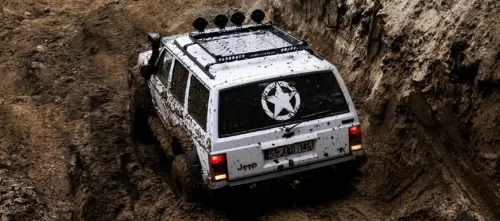
Exploring the Evolution of the Jeep Cherokee (2014 – 2020)
When you’re in the market for a rugged, reliable car that can take you from city streets to off-road adventures without missing a beat, the
Engine Noises are tough to diagnose for a mechanic because the words we use to describe them include: flapping, hissing, knocking, popping, scraping, sputtering, tapping, ticking, and whining.
Yet, you can train yourself to ‘hear’ what your car is telling you by visualizing what might be causing the sound in the first place. You don’t need to be an engine expert, just arm yourself with common sense and a little detective work.
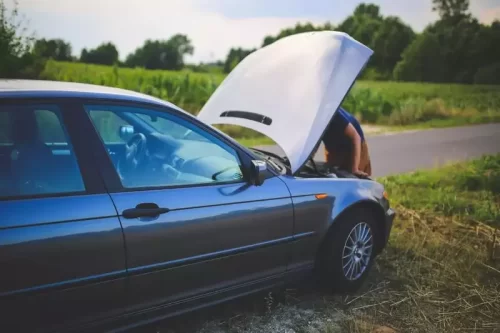
Having this information BEFORE you check in at the garage could actually save you money in the mechanic not having to do the investigative work themselves.
Here are some common noises to listen for, listed alphabetically. Some are of little concern, others can be quite detrimental if left unchecked.
Flapping could be described as the sound you hear when you put a baseball card along the edge of the spokes in a bicycle wheel. It is usually caused by something interfering with the fan, or a belt disintegrating with a piece unraveling and flapping against another car part as the belt rotates.
The most common occurrence of grinding is when shifting a manual transmission. A metal-on-metal grinding sound is likely a clutch issue. While wear and replacement are common on older vehicles, often an adjustment by a pro-transmission shop could be all it needs. Nonetheless, this is not a sound, or feeling, to ignore.
Hissing, (when not the fast loss of air from a tire,) coming from under the hood, when the engine is first shut off, indicates something is leaking. Most commonly, it’s coolant or oil leaking onto a heated engine part, such as the exhaust manifold; less usual is a vacuum line leaking. Note, that some radiator caps are designed to let excess pressure out of the cooling system when the engine could be overheating. If you hear hissing from under your hood, best to open it very, very carefully.
Knocking, also known as pinging, is definitely an engine block problem, and is related to improper combustion. Causes range from incorrect air-to-fuel mixture, using low octane or poor quality gasoline, or carbon deposits on your cylinder walls, from years of using cheap gas. Note, it is a myth that using a higher-octane gasoline in your car than the owner’s manual specifies will keep your engine running cleaner or smoother. However, using lower-quality fuel can definitely result in engine knock.
Popping sometimes referred to as misfiring, can be caused by several factors, but the most common is a clogged fuel filter, not letting a consistent amount of gas get to the engine, or worn or dirty sparkplugs, which would possibly not fire consistently as well. Finally, damaged sparkplug wires are a culprit that eludes some. If you have this problem rotate your wires first and listen for a change in the sound. If you’re checking the sparkplugs, clean them with a wire brush and always re-gap.
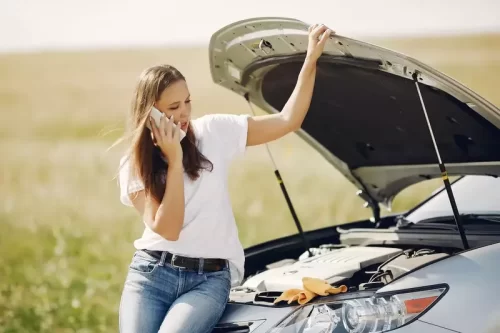
Often scraping when braking means it’s time to replace your brake pads. (They’re designed to make that noise before they become a danger.) But sometimes, just sometimes, scraping is something stuck in or under your car, like a big branch. If it’s a new scraping sound, out of the blue, check for objects in and around the engine compartment. You might even find the ever-so-common bird’s nest in there.
Also referred to as engine screeching, often indicates a belt is loose and slipping when it should be holding steady. Common causes of this are aging belts that are decaying, stretching or the drive pulley guiding the belt has moved causing a small misalignment and a big noise to let you know. Adjusting pullies is a cheap solution if the belt(s) do not seem overly worn. Cleaning the pullies with acetone will improve grip as well as re-tensioning them. But overall, replacing belts is an inexpensive and cost-effective first choice to quiet the noise.
Sputtering is the instance of an older model car continuing to run after it’s been turned off. The effect is called “dieseling,” and this occurs when the gasoline in your cylinders continues to ignite by compression alone; without the aid of the sparkplug. Mostly limited to older engines with carburetors, versus newer fuel-injected engines, this condition can be resolved with a carburetor adjustment, and a change in fuel brand or octane.
Tapping or ticking in the engine compartment is almost always LOW OIL. Before you go to any garage learn how to check your oil. Park your car on level ground and let the engine cool for half an hour. Find the dipstick, check the oil, and if low, fill accordingly. If you still hear that repetitive ticking, and it increases in speed with the revving of the engine, time for a garage visit as your valves or lifters might need some TLC.
Clicking is different from tapping and ticking. Clicking will usually be heard when trying to start the engine, and the engine won’t start. Lucky for you, it’s usually the battery and once in a while, the starter. If you open the hood and the battery terminals are all corroded with white powder a good cleaning might get the car started. If not, a jumpstart will, but head right to a place that will replace your battery on the spot. If your car won’t start with a jump, it might be time for a tow.
Whining most commonly comes from two causes. First, it could be an indication of excessive differential or transmission wear. While this isn’t an ‘engine’ noise, it’s often confused for one. The other more prevalent cause is children in the back seat, in which case stopping the car and yelling louder than the whining usually fixes the problem instantly.
We at Fraser Engine Co. hope you appreciate these tips, and try to incorporate them into your vehicle care and maintenance. Also, remember, that Fraser remanufactured engines have all new parts, and with proper maintenance will never make any of the noises above.

When you’re in the market for a rugged, reliable car that can take you from city streets to off-road adventures without missing a beat, the

Amity Island Police Chief Brody’s 1975 Chevy Blazer The topless Blazer was cool as heck on a hot Summer beach! While the blockbuster movie JAWS
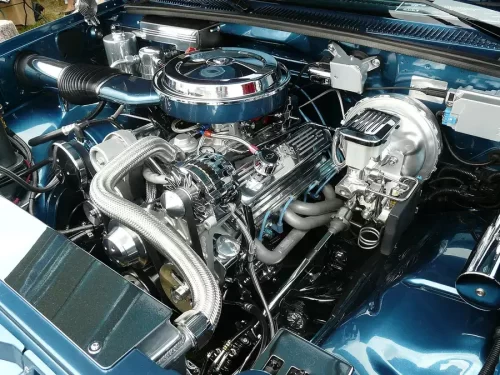
Issue 30 • Engine & Transmission Tips Hey! Great! You’ve decided the Fraser Engine Co. remanufactured engine (or transmission), is the one for you. But,
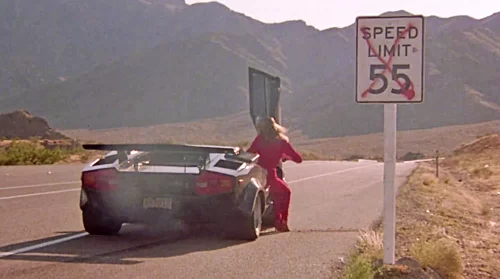
The Real Outlawed Car Race That Inspired A Real Tribute Movie America’s secret illegal grand prix turned into a hit film Best friends set off
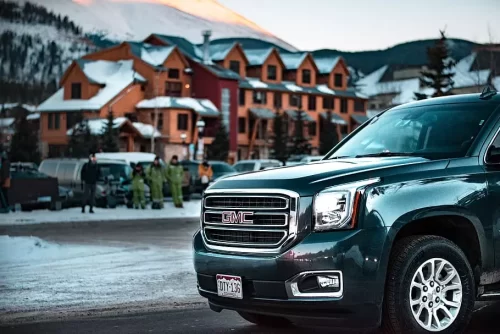
Issue 37 • Engine & Transmission Tips This is the GMC Vortec 5300 (5.3l) V-8 engine specifically remanufactured by Fraser, for GMC Envoy, Chevy Trailblazer,
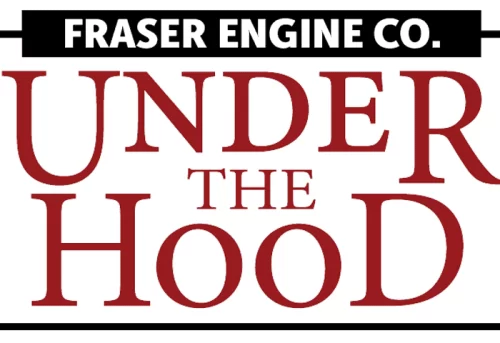
Issue 1 • Engine & Transmission Tip Welcome to Fraser Engine Company’s Under The Hood – A new resource for engine and transmission tips. Our